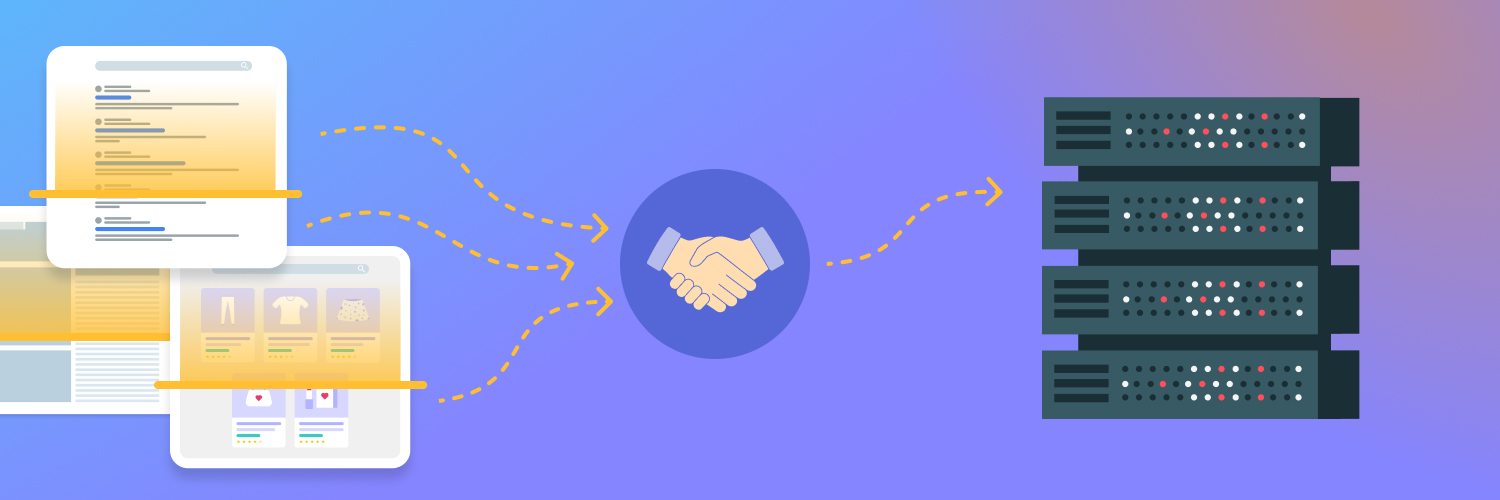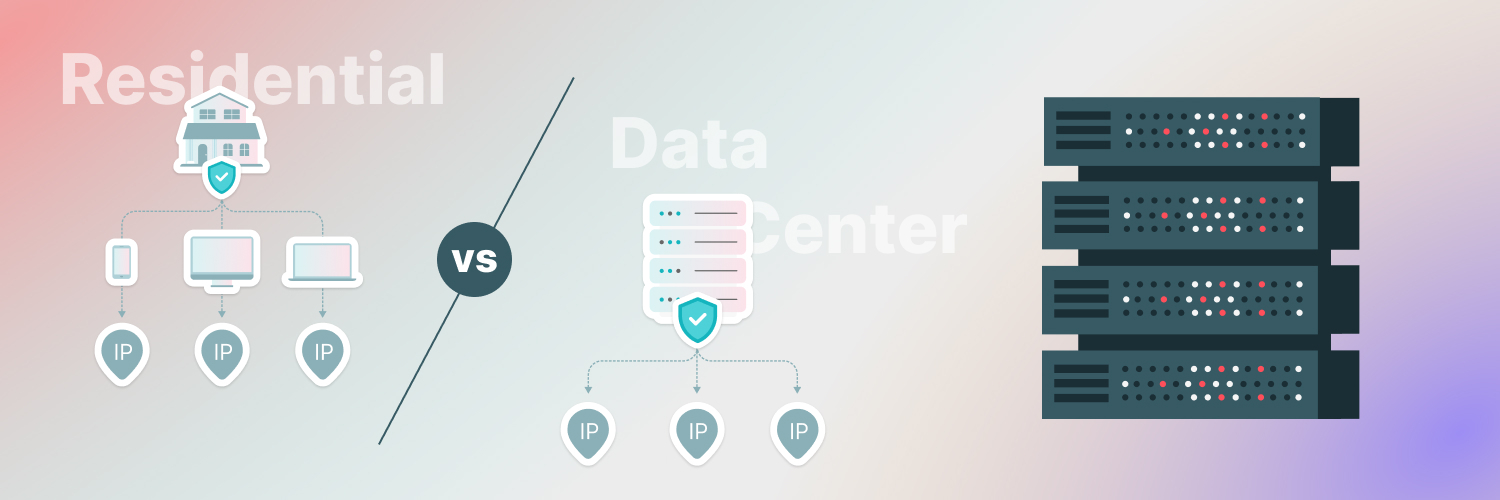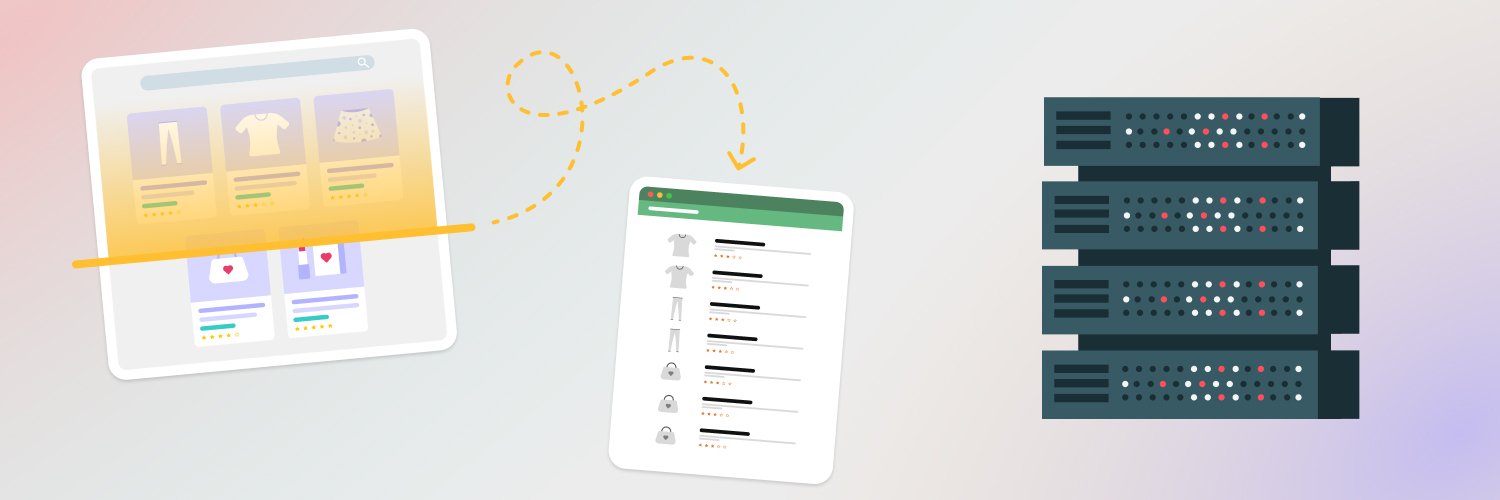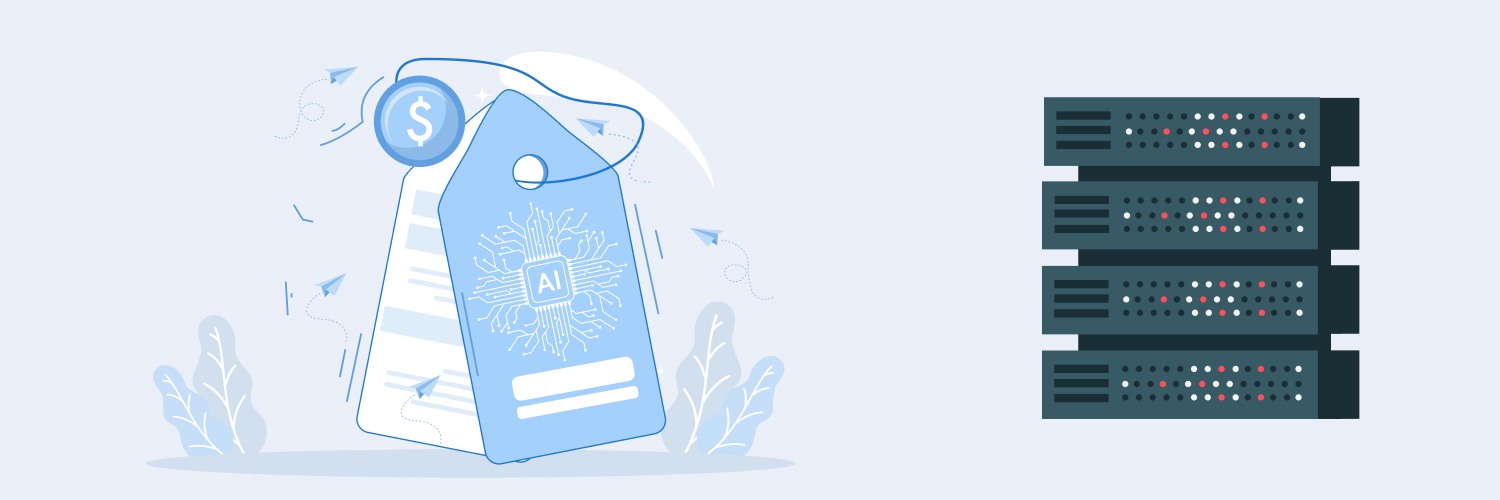Why Proxies are Essential for Retail Data Collection
Retail data powers everything from pricing and promotions to inventory management and customer experience. The companies that know how to collect and analyze the right information are the ones staying ahead; spotting competitor pricing changes in real time, detecting market trends before they peak, adjusting stock and promotions to match demand, and tailoring campaigns to regional preferences.
The challenge is that retail websites and e-commerce platforms don’t exactly make this easy. They’re protective of their data, using anti-bot systems, CAPTCHAs, and IP bans to shut down automated web scraping at scale. Without a smart strategy, your requests can get blocked before you gather anything useful.
That’s where proxies can help.
For large retail teams and enterprise data operations, proxies are the backbone of scalable, reliable, and compliant data collection.
What is a Proxy Server and How Does it Help?
A proxy server acts as an intermediary between a user’s device and the internet. Instead of sending requests directly to a site, your traffic goes through the proxy first. This masks your IP address and replaces it with a different one.
For retail data collection, that simple feature makes a huge difference:
- Anonymity: Competitors can’t see who is collecting the data.
- Access: You can reach content that might otherwise be restricted by location or user type.
- Scalability: By using rotating proxies, you can spread requests across different IP addresses, reducing the risk of getting blocked.
At the enterprise level, this reliability and control become even more crucial, ensuring thousands (or even millions) of requests can run smoothly across multiple teams, regions, and use cases. They provide a middle layer to your data stack, with essential infrastructure that allows you to collect public data safely, accurately, and at scale.
Looking For Proxies?
Ethically-sourced IPs to get the raw data you need.

Types of Proxies for Retail
Not all proxies are created equal. Each type has its strengths depending on your business goals, whether that’s market research, ad verification, or large scale data collection. Enterprise retailers often combine several proxy types to balance speed, accuracy, and resilience, building a tailored proxy infrastructure that fits their global data needs.
Residential proxies
Residential proxies use IP addresses assigned by internet service providers (ISPs) to real households. Because they look like genuine user traffic, residential proxies are harder to detect and block.
They’re the gold standard for retail data collection, especially for:
- Monitoring pricing on competitors’ sites.
- Collecting structured data from retail websites without raising red flags.
- Gaining localized insights from different geographical locations.
For example, if you want to see what a customer in Texas sees on a retail site, U.S.-based residential proxies give you that exact perspective.
Mobile proxies
Mobile proxies route traffic through cellular networks, using IP addresses assigned by mobile carriers. Because these IPs are shared among thousands of real mobile users, they’re even harder for retail websites to detect or block.
They’re particularly effective for verifying mobile ads, checking how retail websites and apps display across different devices, and collecting location-specific data where mobile traffic dominates. For enterprise retailers running omnichannel campaigns or mobile-first promotions, mobile proxies can be a game changer for accuracy and reach.
Datacenter proxies
Datacenter proxies use IP addresses from data centers rather than ISPs. They’re fast, cost-effective, and excellent for tasks that don’t require the “real user” look of residential IPs.
They’re ideal for:
- Collecting high volumes of less sensitive data.
- Running large scale data collection projects where speed is more important than stealth.
- Testing websites and apps under simulated traffic.
Unfortunately, datacenter proxies are easier for websites to detect and block, unlike residential proxies.
Static proxies
Static residential proxies provide the same IP address across sessions. This is useful when you need consistency, like managing multiple accounts on social media or monitoring a store login session without triggering suspicion.
Rotating proxies
Rotating proxies automatically switch IP addresses during a session. This makes them perfect for web scraping at scale, where sending hundreds of requests from the same IP would quickly get you blocked.
Why Proxies Matter for Competitive Intelligence
Retailers use proxies to gather competitive intelligence without tipping off their competitors. For enterprise retailers managing hundreds of product lines and global competitors, that insight can make or break a pricing strategy. Here’s how they do it:
- Pricing insights: Proxies let you see real-time competitor pricing across e-commerce platforms. This ensures your own pricing strategy stays competitive and reflects true market conditions.
- Regional analysis: With proxies from different regions, you can see how pricing and promotions vary geographically. This is a game changer for global brands targeting multiple markets.
- Ad verification: Ad fraud is still a major problem in retail advertising. By using proxies in different locations, companies can verify that their ads appear correctly, and detect whether competitors’ ads are showing up where they shouldn’t.
Without proxies, these insights would be partial at best, missing key details due to blocked requests or region-specific restrictions.
How Proxies Enhance Data Collection
Let’s break down a few common scenarios where proxies are crucial:
- Monitoring competitors’ websites
Want to know if a rival store dropped prices overnight? Proxies allow you to scrape retail websites without your requests getting flagged, ensuring you never miss relevant changes.
- Collecting localized data
Proxies from different geographical locations let you see what customers in London, New York, or Tokyo see. This localized data helps you tailor campaigns and stock for each physical location.
- Ad verification and fraud detection
Retailers spend millions on ads. Proxies make it possible to detect whether ads are showing up correctly, track where competitors’ ads are running, and reduce exposure to ad fraud.
- Social media management
Managing multiple accounts for branding or customer service? Proxies help prevent platforms from detecting that the same IP is being used by multiple users, reducing account bans.
- Market research at scale
Market research depends on diverse, accurate data sources. With proxies, businesses can perform web scraping across search engines, e-commerce platforms, and other sites without being blocked.
Security Benefits of Proxies
Beyond data access, proxies also add a layer of security. Acting as a buffer between your server and the internet, they protect your team’s IP addresses from exposure, reduce the risk of competitors detecting your activities, and filter traffic to keep malicious requests from reaching your systems. For enterprise clients handling massive datasets and customer information across multiple markets, this added security and control are non-negotiable.
Best Practices for Responsible Data Collection
Retail data is valuable, but collecting it comes with responsibilities. At Rayobyte, we emphasize ethical and sustainable data scraping practices:
- Respect site boundaries: Always check robots.txt files and follow terms of service.
- Throttle requests: Don’t flood a website with traffic; use rate limiting to avoid disruption.
- Rotate proxies and user agents: This keeps requests looking natural and reduces detection.
- Focus on public data: Proxies are best used for gathering information that’s already publicly available.
- Session management: Use session-aware headers and proxy rotation to mimic human browsing.
By building a respectful strategy, businesses can access the data they need without harming the sites they rely on.
The Future of Retail Data Collection
The retail market is only getting more complex, and with increasingly sophisticated anti-bot systems, the reliance on proxies will only grow. Businesses that fail to invest in robust proxy solutions risk losing access to critical competitor data, missing the early signals of market trends, and falling behind in both pricing strategies and customer experience. For enterprises, the ability to collect and manage high-volume data securely and efficiently will be a defining factor in staying competitive.
On the flip side, companies that build smart, ethical data collection strategies with proxies gain a major advantage. They can spot competitors’ moves earlier, verify ads with greater accuracy, and create pricing models that reflect real-time market dynamics.
Want to see what this looks like in practice?
Download our free guide, Unlocking E-Commerce Profitability: A Guide to Competitive Price Monitoring, to learn how leading retailers use data, proxies, and automation to track competitor pricing, structure scalable monitoring systems, and make smarter pricing decisions across thousands of SKUs.
Why Work With Rayobyte
Proxies are essential for retail data collection, powering everything from competitive intelligence to ad verification. Whether you’re monitoring retail websites, managing multiple accounts, or collecting structured data from different regions, they give you the ability to access accurate, reliable insights at scale. Our proxy solutions are built for enterprise scale—supporting complex data operations, high request volumes, and global teams that need dependable infrastructure and expert support.
At Rayobyte, we believe responsible data collection is the future. With the right mix of residential proxies, datacenter proxies, and rotating proxies, businesses can build a data stack that drives smarter decisions, protects security, and creates lasting competitive advantages.
Get in touch with our team today, or try our proxies now.
Looking For Proxies?
Ethically-sourced IPs to get the raw data you need.




